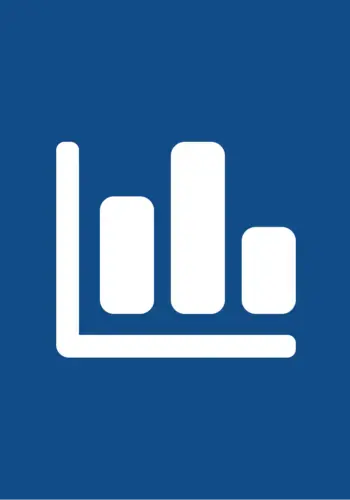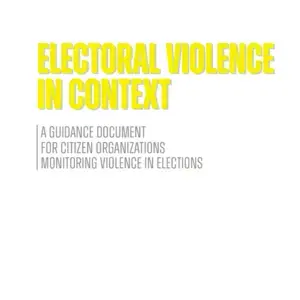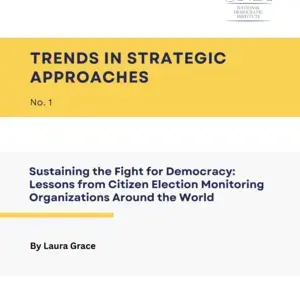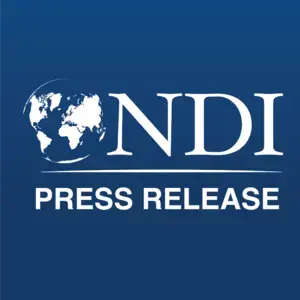NDI’s latest nationwide survey, completed in May 2019, following the second round of the presidential election, shows a dramatic increase in optimism and high expectations for the newly elected president as well as the country as a whole. The assessment of the presidential election far exceeded expectations with overwhelming majority of respondents (88 percent) assessing the process positively. In addition, support for EU and NATO has grown nationally and in every region of the country.
Ukrainians are much more optimistic than in previous polls with dramatic shifts in optimism in most of the country. Demand for a fully functioning democracy has increased in every region, including by ten percent in both the South and the East. Ukrainians now cite both rising prices and the conflict in the East as their biggest concern and most cite Russian military aggression as a threat to their way of life. Ukrainians continue to demand more balance of men and women in political life (62 percent).
Expectations are high for the newly elected president, Volodymyr Zelenskyy, and the next parliament. Two-thirds of the country state that Zelenskyy will make the changes that matter to them and 49 percent report that he is interested in hearing their opinions. Almost every respondent expects at least one major reform to be delivered by the president in the next 12 months. In the lead-up to the parliamentary polls, half of respondents expect the next parliament to represent their interests better than the current one.
Political party support has increased on all measures, reflecting a more diverse political spectrum. There has been a corresponding drop in “no preference” or “no party” (-10 percent and -18 percent since December 2018, respectively). Interest in participating in the coming parliamentary elections, scheduled for July 21, is high with more than half of the country certain to vote and an additional quarter likely to participate.
The survey was designed and executed by the National Democratic Institute in Ukraine. The fieldwork was conducted by the Kyiv International Institute of Sociology from May 14-29, 2019 with 2,502 face-to-face interviews. The survey is nationally representative with four macro regions of Ukraine: West, Center/North, South, East. Areas outside the control of the Ukrainian government were excluded. The average margin of error for this survey is +/-3%. The research is funded by the United States Agency for International Development (USAID), the Government of Sweden, UK Aid and Global Affairs Canada.
__________
Можливості та перешкоди на шляху демократичного переходу України
Останнє загальнонаціональне опитування НДІ, проведене у травні 2019 року після другого туру президентських виборів, показує різке зростання оптимізму та високих очікувань від новообраного президента, а також країни в цілому. Оцінка президентських виборів значно перевищила очікування, переважна більшість респондентів (88%) оцінює процес позитивно. Крім того, підтримка ЄС і НАТО зросла на національному рівні та в кожному регіоні країни.
Українці набагато оптимістичніші, ніж у попередніх опитуваннях, з різкими змінами в рівні оптимізму по всій країні. Попит на повноцінно функціонуючу демократію збільшився в кожному регіоні, зокрема на десять відсотків як на Півдні, так і на Сході. Сьогодні українці називають зростання цін, так і конфлікт на Сході, серед тих питань, які викликають найбільше занепокоєння, а більшість громадян вказують на російську військову агресію як загрозу їхньому життю. Українці продовжують вимагати більшого балансу чоловіків і жінок у політичному житті (62%).
Очікування від новообраного президента Володимира Зеленського та наступного парламенту є високими. Дві третини країни стверджують, що Зеленський привнесе зміни, які важливі для людей, і 49 % респондентів стверджують, що він зацікавлений почути їхню думку. Майже кожен респондент очікує, що принаймні одна велика реформа повинна бути проведена президентом протягом наступних 12 місяців. Напередодні парламентських виборів половина респондентів очікують, що наступний парламент краще представлятиме їхні інтереси, ніж теперішній.
Підтримка політичних партій зросла по всіх напрямках, відображаючи більш різноманітний політичний спектр. Відповідно, зменшився показник тих людей, які не надають перевагу чи не обирають певну партію ("без переваги" мінус 10 відсотків або "жодна партія" мінус 18 відсотків з грудня 2018 року відповідно). Інтерес до участі у майбутніх парламентських виборах високий, і більше половини респондентів збираються взяти участь у виборах, заплановано на 21 липня, а близько чверті ймовірно голосуватиме.
![]()




